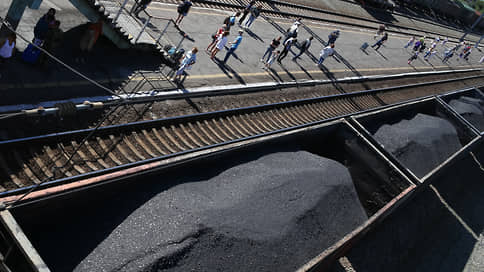Coal anchored – Newspaper Kommersant No. 175 (7376) of 09/22/2022
[ad_1]

Russian coal companies are likely to face lower supplies to India in September due to logistical problems. Suppliers are grappling with congestion in the Baltic and the fallout from EU sanctions that ban insurance for Russian coal shipments to third countries. The situation with the availability of bulk carriers to transport coal may worsen when other countries increase purchases in anticipation of winter. However, according to analysts, in the medium term, Russia will continue to increase supplies to India due to the high quality of coal and significant discounts to the world price.
Russian imports of thermal coal to India are likely to fall by 30% in September, to 1.4 million tons, according to the Indian consulting company Coalmint, citing its own data. After the outbreak of hostilities in Ukraine and Europe’s refusal to buy Russian coal, India significantly increased imports from Russia. According to the Indian customs, Russia increased deliveries in January-July by 2.5 times, up to 6.7 million tons.
Coalmint reports that there are several reasons for the drop in imports. First, the long waiting period for coal ships. Second, increased congestion on shipping routes around the Danish Straits (connecting the Baltic to the North Sea) as Europe struggles for energy supplies and ships carrying LNG, diesel and oil hold routes for longer periods. Argus noted in its August review that Russian suppliers ship coal to India from far eastern, southern and northwestern ports, with the Baltic port of Ust-Luga being one of the most active export hubs on the route, which shipped several Capesize vessels to India in June. Prior to the introduction of the EU embargo on Russian coal, shipments from the Baltic ports were mainly destined for Northern Europe.
Finally, the dynamics of imports is negatively affected by the refusal of Western companies to insure the transportation of Russian coal cargoes due to sanctions. SUEK logistics director Denis Rakhimzhanov said on September 13 that only 30% of the world’s bulk freight is available to Russian coal companies. “Back in February, we had 100% available, today only 30% is available, and in addition, in August we faced the unprecedented influence of the clubs that provide ship reinsurance. Today, coal companies, together with the Central Bank and the government of the Russian Federation, are very actively working to create their own insurer or join the BRICS countries,” he explained (cited by Interfax). At the same time, according to Bloomberg, the European Commission, against the backdrop of extremely high prices, is considering the possibility of lifting the ban on insurance for the transportation of Russian coal “to ensure energy security.”
Coalmint believes that India’s coal imports from Russia are likely to be limited in the coming months as vessel availability will be limited with the start of winter restocking by various countries.
Despite short-term problems, analysts do not doubt the potential for growth of Russian exports to India. Coal generation occupies more than 70% of the country’s total energy balance, says Nariman Taiketaev, director of the corporate ratings group of the NKR agency. According to his estimates, the current share of Russian coal miners in Indian imports is only 4% and should grow, given the high quality of Russian coal and the provision of significant discounts to current world prices.
[ad_2]
Source link





